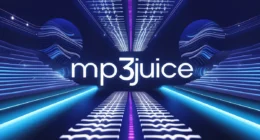Table of Contents
Blockchain technology is often associated with cryptocurrency, like Bitcoin and Ethereum. However, its potential goes far beyond digital currencies. Blockchain is a powerful tool that has the ability to transform industries, improve security, and create new ways of doing business. Let’s explore how blockchain works and how it can be applied to different sectors beyond just cryptocurrency.
What Is Blockchain?
At its core, blockchain is a decentralized, digital ledger that records transactions across many computers. Once a transaction is recorded, it cannot be changed or deleted, making it highly secure. The data is stored in “blocks,” which are linked together to form a chain—hence the name “blockchain.” Each block contains a record of several transactions, and once a block is full, it is added to the chain in a way that is visible and verifiable by everyone involved. This ensures transparency and prevents fraud.
Supply Chain Management
One of the most promising uses of blockchain outside of cryptocurrency is in supply chain management. Blockchain can improve transparency and traceability in the movement of goods. For example, companies can track the origin of raw materials, monitor the path products take through the supply chain, and verify that items are being produced and transported ethically. This can reduce fraud, increase accountability, and provide consumers with a clear picture of where their products come from.
For instance, a company could use blockchain to trace the journey of a coffee bean from the farm where it’s grown to the coffee cup at your local café. By using blockchain, customers can confirm whether the beans were sustainably sourced and whether workers were paid fairly. This level of transparency can also help businesses build trust with their customers.
Healthcare
Blockchain has the potential to revolutionize the healthcare industry by making patient data more secure and accessible. Currently, medical records are stored across multiple systems, often with limited access and poor coordination between providers. Blockchain could centralize and streamline this process, making it easier for patients and healthcare providers to share important information.
With blockchain, patient records could be stored securely and made accessible only to authorized personnel. This reduces the risk of medical errors, prevents identity theft, and ensures that critical information is available during emergencies. Furthermore, blockchain could help track the provenance of pharmaceutical products, preventing the sale of counterfeit drugs.
Voting Systems
Blockchain can also be used to create more secure voting systems. The integrity of elections is crucial, and blockchain’s ability to record transactions in a tamper-proof way makes it an ideal solution for voting. By using blockchain, votes could be securely cast and tracked, with each voter’s identity verified and their vote recorded in a way that cannot be altered.
This could reduce the risk of election fraud and ensure that the voting process is transparent. In addition, blockchain could help improve voter turnout by allowing people to vote remotely, reducing the need for physical polling stations and long wait times.
Intellectual Property Protection
Another area where blockchain can make a difference is in protecting intellectual property (IP). Creators and inventors often struggle to protect their work from theft or unauthorized use. Blockchain can help by providing a way to register and track ownership of IP rights in a secure and transparent manner.
For example, an artist could use blockchain to register the ownership of their artwork, ensuring that it cannot be copied or sold without their permission. Similarly, writers, musicians, and other creators can use blockchain to prove they are the original owners of their work, which can help prevent copyright infringement and unauthorized use.
Real Estate
Blockchain can also simplify and secure the real estate process. Traditionally, buying or selling property involves a lot of paperwork, intermediaries, and the potential for fraud. Blockchain can reduce these inefficiencies by making property transactions faster, cheaper, and more transparent.
By using blockchain, property ownership can be recorded digitally, and contracts can be automatically executed through smart contracts, which are self-executing contracts with the terms directly written into code. This can eliminate the need for middlemen like lawyers and notaries, speeding up the process and reducing costs.
Digital Identity Verification
Blockchain can provide a secure and reliable way to verify identities online. Currently, many systems rely on passwords or other forms of identification that can be easily compromised. With blockchain, a person’s identity could be verified using secure, immutable data that cannot be altered.
This could reduce the risk of identity theft and make online transactions more secure. For instance, blockchain could be used to verify your identity when signing up for online services, applying for a job, or even accessing government services. With blockchain, you would have greater control over your personal information and who can access it.
Financial Services Beyond Cryptocurrency
While blockchain is most famous for supporting cryptocurrencies, it is also transforming traditional financial services. Banks and financial institutions are using blockchain for a variety of purposes, such as speeding up cross-border payments, reducing transaction fees, and improving security.
Blockchain can make financial transactions faster and more transparent by eliminating the need for intermediaries like banks. This could lead to lower fees and faster transfers, especially for international payments. Blockchain also helps in reducing fraud and ensuring that transactions are recorded securely, making financial systems more reliable.
Conclusion
While blockchain is best known for its role in cryptocurrencies, its applications extend far beyond digital currency. From improving supply chain transparency to revolutionizing healthcare, voting systems, and intellectual property protection, blockchain has the potential to transform many industries. Its ability to provide secure, transparent, and tamper-proof records makes it an invaluable tool for a wide range of applications. As the technology continues to evolve, we can expect to see even more innovative uses of blockchain in everyday life.











